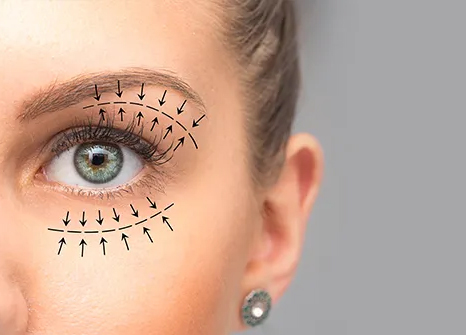Cataracts often develop slowly, and the symptoms may not be noticeable in the early stages. However, as the cataract progresses, the following symptoms may become more apparent:
- Blurred Vision: One of the most common symptoms is a gradual blurring of vision, making it difficult to see fine details and causing overall visual impairment.
- Cloudy or Hazy Vision: Vision may appear cloudy or hazy, as if you are looking through a foggy or frosted glass.
- Sensitivity to Light: Increased sensitivity to bright lights, glare, or sunlight can be experienced. Headlights or streetlights may cause more discomfort when driving at night.
- Difficulty Seeing at Night: Difficulty seeing clearly in low-light conditions, particularly at night, is a common symptom of cataracts.
- Frequent Changes in Prescription Glasses: Individuals may notice a need for frequent changes in eyeglass prescriptions as cataracts progress and impact vision.
- Double Vision: Cataracts can cause double vision in one eye, especially when looking at lights or objects against a dark background.
- Changes in Color Perception: Colors may appear faded or have a yellowish or brownish tint. This can affect the ability to distinguish between certain colors.
- Halos Around Lights: Seeing halos around lights, such as streetlights or car headlights, is a common symptom, particularly during nighttime.
- Difficulty Reading or Performing Detailed Tasks: As cataracts progress, it may become challenging to read, sew, or perform other activities that require clear vision and focus.
- Frequent Changes in Contact Lens Tolerance: Contact lens wearers may experience increased discomfort or find it challenging to tolerate contact lenses.
It’s important to note that these symptoms can also be indicative of other eye conditions, so if you experience any changes in your vision, it’s essential to consult with an eye care professional for a comprehensive eye examination. Early detection and treatment of cataracts can help manage symptoms and prevent further vision impairment. If cataracts significantly impact daily activities and quality of life, surgery to remove the cataract and replace the lens may be recommended by an eye surgeon.
Are you experiencing blurred vision, glare, or difficulty seeing clearly? Dr. Seema, your dedicated cataract specialist in Andheri, is here to restore your vision and enhance your quality of life.




